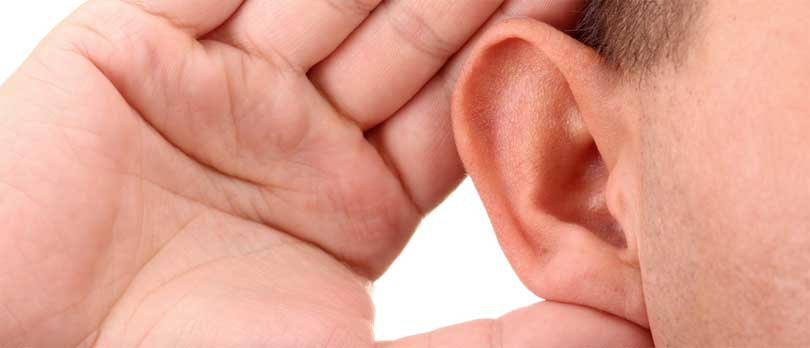Sudden deafness
- Sudden Sensorineural Hearing Loss (SSHL), or sudden deafness, is a rapid loss of hearing
- Sudden deafness can happen to a person all at once or over a period of up to 3 days
- It should be considered a medical emergency and a person who experiences SSHL should visit a doctor immediately
Sudden deafness diagnosis
- A doctor can determine whether a person has experienced SSHL by conducting a normal hearing test
- If a loss of at least 30 decibels in three connected frequencies is discovered, it is diagnosed as SSHL
Features of sudden deafness
- Hearing loss affects only one ear in 9 out of 10 people who experience SSHL
- Many people notice it when they wake up in the morning – others may first notice it when they try to use the deafened ear, such as when they make a phone call
- Still others notice a loud, alarming “pop” just before their hearing disappears
- People with SSHL often experience dizziness or a ringing in their ears (tinnitus), or both
- Some patients recover completely without medical intervention, often within the first 3 days – others get better slowly over a 1 or 2 week period
Sudden deafness prognosis
- It can affect anyone, but for unknown reasons it happens most often to people between the ages of 30 and 60
- Depending on the cause a good to excellent recovery is likely, 15 % of those with SSHL experience a hearing loss that gets worse over time
Sudded deafness causes and diagnosis
- Though there are many possible causes of sudden deafness, it is rare for a specific cause to be precisely identified
- Only 10 to 15 % of patients with SSHL know what caused their loss
- Normally, diagnosis is based on the patient’s medical history
Possible causes include the following:
- Infectious diseases
- Trauma, such as a head injury
- Immunologic diseases such as Cogan’s syndrome
- Toxic causes, such as snake bites
- Ototoxic drugs (drugs that harm the ear)
- Circulatory problems
- Neurologic causes such as multiple sclerosis
- Disorders such as Ménière’s disease
Treatment of sudden deafness
- People who experience SSHL should see a doctor promptly – finding medical help fast increases the chances for recovery
- Several treatments are used for SSHL, but researchers are not yet certain which is the best for any one cause
- If a specific cause is identified, antibiotics may be needed, or a doctor may advise a patient to stop taking any medicine that can irritate or damage the ear
- The most common therapy for SSHL, especially in cases with an unknown cause, is treatment with steroids
- Steroids are used to treat many different disorders and usually work to reduce inflammation, decrease swelling, and help the body fight illness
- Steroid treatment helps some SSHL patients who also have conditions that affect the immune system, which is the body’s defence against disease
- Another common method that may help some patients is a low sodium diet – researchers believe that this method aids people with SSHL who also have Ménière’s disease




